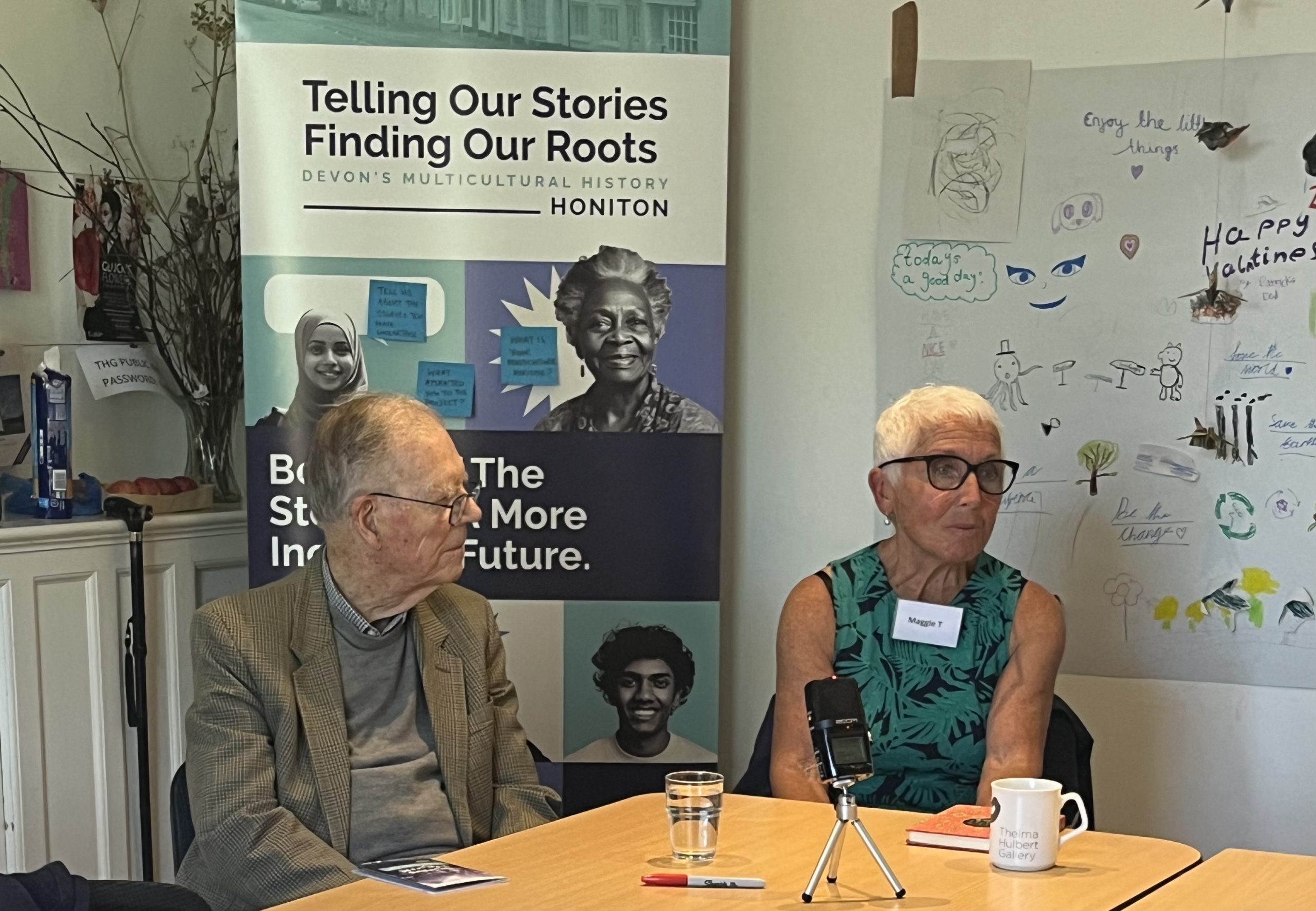Media Release 20th June 2024: Honouring the courage, strength and determination of refugees on World Refugee Day
Today is World Refugee Day, an international day organised every year by the United Nations, that aims to honour and celebrate refugees from around the world.
A refugee is someone who leaves their country due to war, persecution and violence, often carrying only minimal clothing and possessions, with the aim of finding safety elsewhere. Refugees are not able to return to their own country. There are currently 130 million refugees globally.
In Devon the Telling Our Stories, Finding Our Roots multicultural history project has been uncovering the stories of refugees and others for the past year focusing on the towns of Ilfracombe and Honiton.
Hilda Kalap, Project Coordinator says: “Our skilled and dedicated volunteers are now at the stage of writing up stories from their archive research and undertaking oral history interviews. It’s exciting to see what is being produced to be shared with future generations in the form of exhibitions, walking tours and educational resources. The project will open up many people’s eyes for the first time to the richness of Devon’s diverse history.”
Volunteer Anne in Honiton is writing up the story of Egon Silbernagel born in Germany in 1925. He had Jewish parents but was brought up as a Roman Catholic, as was his older sister. He left Germany on a Kinder Transport on 3rd May 1939, a few months before World War II began. Egon’s father was involved in a plot to assassinate Hitler, was betrayed and took his own life rather than fall into the hands of the Gestapo.
Egon’s story is vital in remembering the circumstances that led to genocide tragically being carried out against one race.
Volunteer Maggie in Honiton supported Ugandan Asian refugees at the Honiton camp they called home after being expelled from their country by President Idi Amin in 1972. She has recorded her experiences of that time including the following memory:
“The only things that they had been able to bring very often were their wedding jewellery, particularly the women who had stitched their jewellery in a skirt and various other places otherwise they wouldn’t have been able to bring them out. And they had to have those removed from them before they could have an X-ray.
“They’d had to leave a country with nothing, well very little, and all these things were really precious to them. And you know it took someone to have to think, how would I feel in that situation? It wasn’t me. It was the friends that we got engaged. They saw it happening and just held onto the things and promised the individuals, we will be here when you come out. This is yours, we are not taking them away. We’re holding them for you. And that went round. People began to realise we were people who were really wanting to help and would understand.”

Maggie talks about supporting the Ugandan refugees after they arrived in Honiton during the 1970s
And volunteer Laurence in Ilfracombe is collating the stories of Polish refugees who came to the area during the Second World War.
Once the project is over there will be at least eight multicultural oral histories and eight stories uncovered via archive research collected in each town.
-ends-
For further information please contact Hilda Kalap: hildatosfor@gmail.com or Tel: 07983216793
Notes to editors
The Telling Our Stories, Finding Our Roots project began in June 2023 and will take 18 months to complete, finishing at the end of 2024. It is funded by the National Lottery Heritage Fund. It continues two previous Telling Our Stories projects in Exeter, Tiverton, Bideford and Okehampton.
Website: https://www.tellingourstoriesdevon.org.uk/
The project is run by Devon Development Education a global education charity (reg 1102233), based at The Global Centre, 17 St David’s Hill, Exeter, EX4 3RG, with over 20 years’ experience of providing expertise to schools and communities in Devon. We develop and run projects with groups throughout the county. We aim to provide a “window on the world” to enable children and adults to understand links between their own lives and those of others worldwide; and to develop skills, attitudes and values which enable people to work together to bring about change to create a just and sustainable world.
The National Lottery Heritage Fund was set up in 1994 to fund projects of all sizes that connect people and communities to the UK’s heritage. In that time it has invested £8.8 billion in heritage and supported 51,000 heritage projects.
